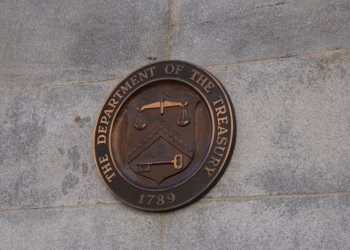AI talent crunch accelerates as countries scramble to secure their dominance
The race to develop and deploy high-level artificial intelligence (AI) models has become the latest fixation of governments and tech companies around the world.
In the last month alone, Google poured 25 million euros into a new initiative to boost AI competency skills for Europeans and partnered with the French government to set up a new AI-dedicated hub in Paris.
At the same time, its rival Microsoft announced a 3 billion euro investment into AI development in Germany .
On March 20, sources told the Financial Times that Germany’s Aleph Alpha and two United Kingdom-based AI firms — Synthesia and StabilityAI — are considering relocating their headquarters abroad.
According to the report, officials from Canada and the United Arab Emirates have approached the companies, attempting to lure them from the European Union region. The sources said they were offered subsidies, relaxed tax regimes and “light-touch” regulation.
This comes as the European Union passed its landmark AI Act on March 13, which set into motion the world’s first comprehensive set of AI regulations for the development and deployment of AI tools within the EU.
Jonas Andrulis, founder and chief executive of Aleph Alpha, told the FT that they have already been approached by companies outside the region, saying: “Oh, now, with all that horrible regulation, don’t you want to move your AI R&D company?”
Cointelegraph reached out to Aleph Alpha for additional comment on the impact of the EU’s AI Act.
Related: OpenAI swoops up French and Spanish news partners for AI chatbot training
The EU AI Act has set into motion both positives and negatives for local tech companies, with some worrying that the regulations will stifle innovation in the region and others praising the fact that guidelines have finally been put in place.
However, innovation hasn’t stopped just yet. On March 19, Denmark announced a collaboration with Nvidia, the global leader in AI semiconductor chip manufacturing, to create the world’s most advanced AI supercomputers in the country.
However, other regions around the world have begun to catch the eye of major tech companies to keep up with current AI leaders like the United States and the EU. In Asia, Singapore is aiming to become an AI hub , developing commercial AI models in local languages.
In the Middle East, OpenAI, the developer of the popular chatbot ChatGPT, has been in talks with investors from the United Arab Emirates for the development of its own semiconductor chip, which followed a separate agreement with two companies in the country as a part of its Middle East expansion.
Meanwhile, in Saudi Arabia, the government is reportedly considering creating a $40 billion investment fund in the AI sector overseen by venture capital firm Andreessen Horowitz, which would make the country the largest investor in the AI space.
Magazine: Truth behind AI reply guys, Copilot picture panic, Trump deepfakes: AI Eye
Disclaimer: The content of this article solely reflects the author's opinion and does not represent the platform in any capacity. This article is not intended to serve as a reference for making investment decisions.
You may also like
Ethereum's imminent fall: Trader predicts historic 91% devaluation against Bitcoin
Ripple Revolutionizes Global Payments with RLUSD Stablecoin Integration
Cardano Innovates with Veridian: Quantum-Resistant and Globally Interoperable Digital Identity Platform
U.S. Treasury Sanctions Crypto Wallets Tied to Houthi Terrorist Financing
The U.S. Treasury Department has intensified its crackdown on financial networks linked to terrorist organizations, sanctioning multiple cryptocurrency addresses associated with the Yemen-based Houthi movement.

